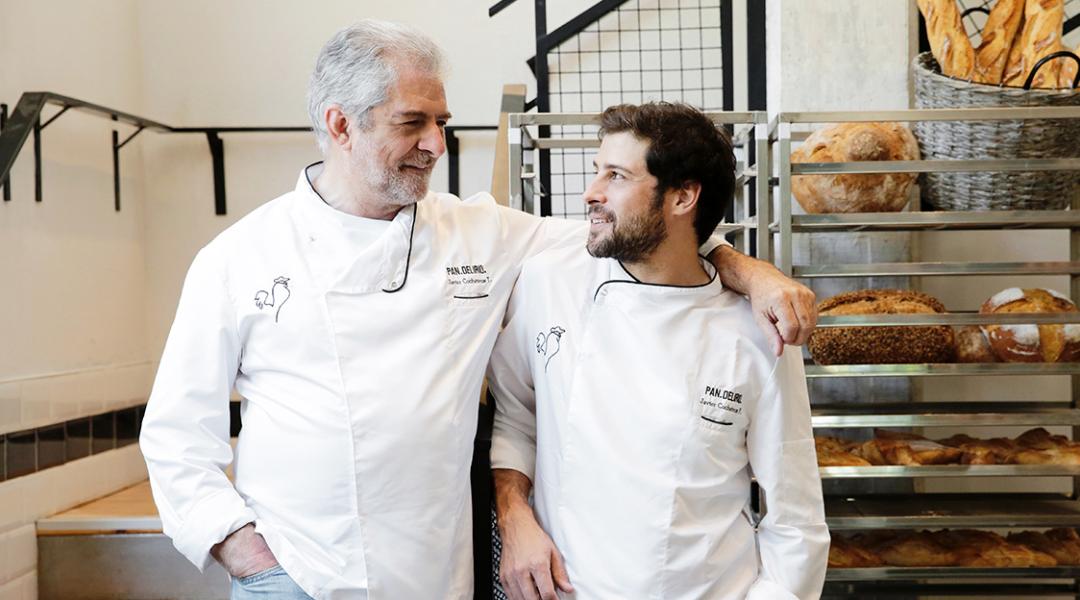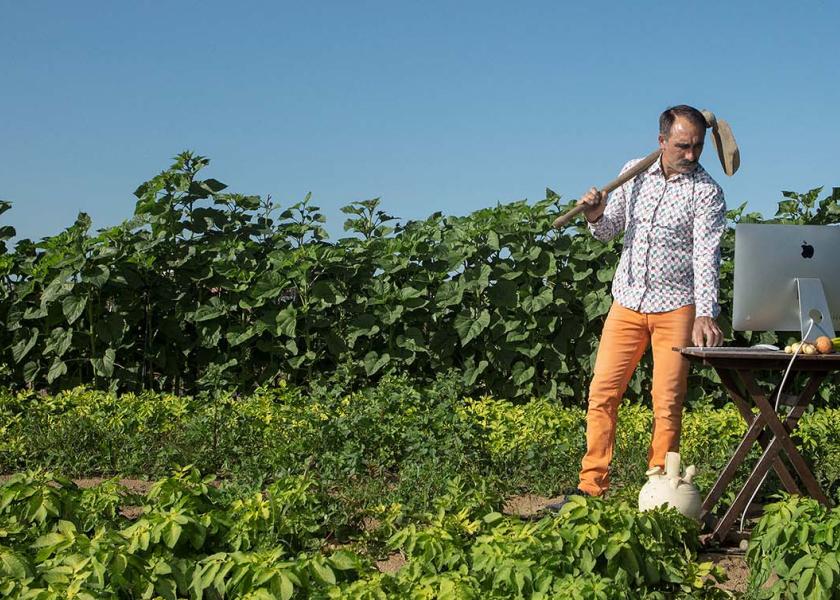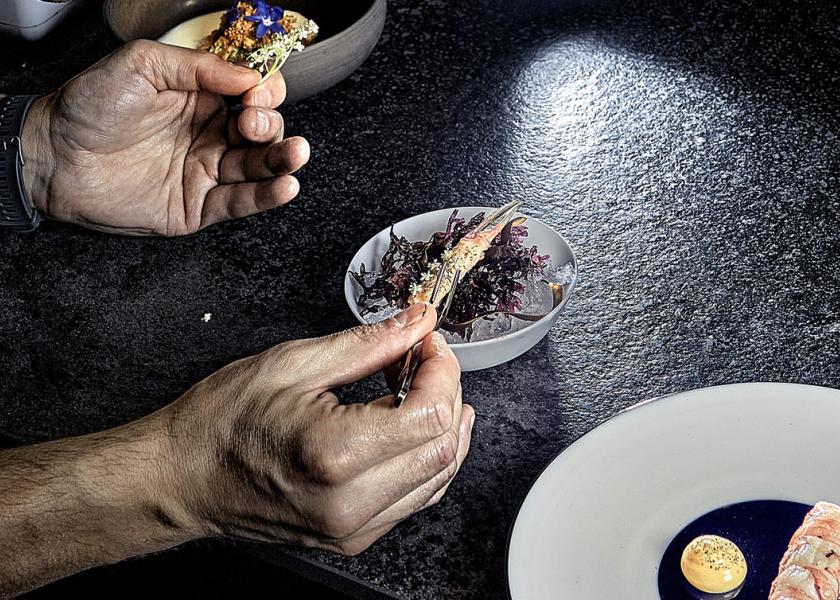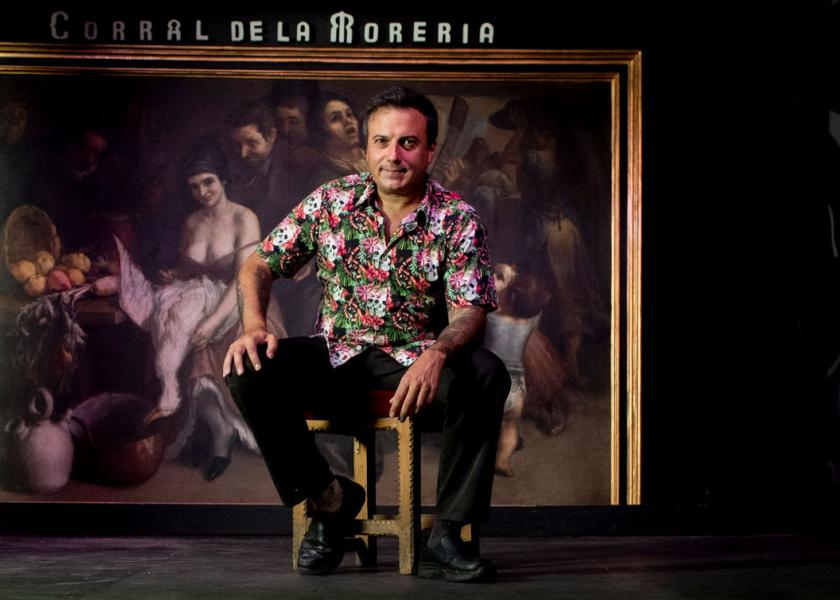Javier Cocheteux
The beginning of a craze

Javier Cocheteux, father and son, have turned their multi-award-winning bakery into a place of worship of bread (and 'roscón' [king cake], among other delights). With honesty as their main ingredient, they campaign for artisan baking, an arduous process that they explain to us step-by-step to convey their knowledge and reveal the talent behind a good bakery and confectionary product. Welcome to Pan.Delirio.!
In just five years, the Cocheteux have become one of the leading bakery and confectionary businesses in Madrid. The multiple awards Pan.Delirio. has won confirm this: the Miga de Oro Award for Best Bread (2019), Mejor Tienda Gastronómica [Best Food Shop Award] (2020), Mejor Torrija Tradicional [Best Traditional French Toast Award] (2022), and four consecutive years among the 80 best bakeries in Spain. And above all, the award that probably makes them both feel the proudest: Mejor Roscón Artesano [Best Artisan King Cake Award] (2020).
Although they didn’t start out in the professional bakery world, the Cocheteux opened their first bakery on Calle Juan Bravo in 2017 with an oven with a capacity of 50 kilograms. During the pandemic, they moved to the neighbourhood of Tetuán and, today, they already have eight points of sale in the Spanish capital. The Roscón de Reyes [King cake] is their best-selling product, most in demand and well-loved by their regular customers.
It’s how it all started, Javier Junior recalls in their office. “The beginning of our craze was the Roscón de Reyes. The beginning was tough, with a lot of hard work and a steep learning curve. Leaving everything for this seemed crazy”, he adds, and explains that one of their aspirations is to convey that healthy craziness in their recipes. During our tour of their bakery in Tetuán, Javier Senior gives a Proustian statement: “The roscón is present in every household on the day of the Epiphany (Three Kings Day, 6th of January), which is a magical day, and the childhood feelings associated to it are etched into your memory.”
“The 'roscón' is present in every household on the Epiphany and the childhood feelings associated to it are etched into your memory”
We all associate the roscón to Christmas, but at Pan.Delirio. they sell it year-round. The main goal is to raise awareness and respond to the demand from some customers, who encouraged the Cocheteux to carry on selling it after Christmas and which, by word of mouth, made it popular. With hard work, dedication, and honesty they have turned this confection into the watchword of a family project that currently employs around 65 people.
Pan.Delirio. defines itself as “honestly artisan”, and that value is instilled as a building block within the team. Javier Senior believes that people value an artisan roscón when they try it. “Other bakeries fill them with cream or crème patissière to disguise the flavour that a good roscón should have. They don’t focus on what’s important.” This emphasis on the care and respect for production processes becomes a constant throughout our visit.
Both Javiers take particular care when selecting raw materials, which “have improved drastically” over the years. They have more than one hundred suppliers, the best of each region: Asturian butter from Tineo, orange blossom honey from Córdoba, or flours from Zamora and Guadalajara. They are organic, free from additives, and are mainly stone milled to maintain the integrity of the wheat.
The talent behind bread
The Pan.Delirio staff work on the ground floor of the bakery every day. They start mixing the dough first thing, the first step in the bread making process. The dough mixing machine, a kind of giant pot whose maximum manual capacity is 120 kilos, is the place where the ingredients are mixed together. Depending on the season, Pan.Delirio. produces between twelve and sixteen different types of bread, but the bakery works on everything every day.
At this point, the gluten structure develops, which adds body to the dough. Respecting the enzyme processes throughout is essential, since they make wheat protein digestible. “In Spain, we’ve eaten terrible bread since the 1950s,” insists Javier Senior regarding poor gluten deterioration. Concern for responsible food manufacturing motivated the Cocheteux to hire the Spanish National Research Council’s services to study bread processes. They are currently continuing this work alongside IMIDRA (Madrid Institute of Rural, Agrarian, and Food Research and Development) to help people “understand the difference between good and bad bread”, a clear example of their educational conscience.
During the proofing process, the dough rests in six-kilo buckets for two to four hours. Then, bakers fold the dough —pulling and compressing it— to strengthen the gluten structure and add body to the bread. Later, the dough moves onto the bench, where it’s split into one-kilo pieces to be pre-shaped and shaped. Finally, they are placed in the cold room until the next day. “The cold enhances the aromas and flavours, as well as reducing the glycaemic index so less sugar reaches the blood stream. The grain of wheat releases micronutrients (vitamins and minerals) when optimal temperature and humidity conditions occur,” Javier tells us.
“The key to talent is spending time, passion, and commitment on things working out. But without effort, it doesn’t happen”
On the third day, the last in the process, the dough is baked. Their largest oven is in Tetuán, with a capacity for more than 100 kilos of bread, which are baked as one-kilo loaves. Temperatures range between 180 and 230 degrees at different levels, ensuring that the centre is also baked at around 95 degrees. Once they are ready, they are removed from the oven with a peel.
At Pan.Delirio. they repurpose everything, because discard is saved for other recipes. Something they also do with the orange peel from their Roscón de Reyes, which they cover in chocolate and sell separately. Roscón dough is also used to make another of their best-selling products: their torrija (French toast soaked in milk infused with lemon rind, cinnamon, and orange blossom honey) and their delirios [delights], a small confection for those who want a little treat.
For Javier Cocheteux Junior, “the key to talent is spending time, passion, and commitment on things working out. But without any willingness to work hard and effort, it doesn’t happen,” while his father defines it as “applying common sense, eagerness, and knowledge to a certain project.” They share this talent at Materia, a training space connected to Pan.Delirio., where they teach courses like Creando panaderos [Making bakers], aimed at students who want to open their own bakery business one day. Who’s up for it?








